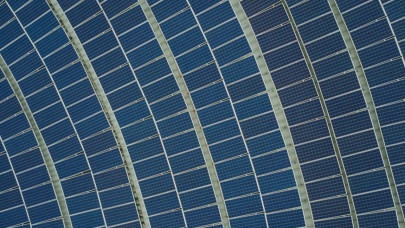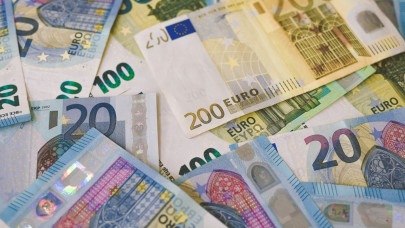How is Raiffeisen Bank Romania integrating ESG principles into its core business operations?
We are integrating ESG principles into our core business operations through a comprehensive approach that starts at the governance level. We have established an ESG and Sustainability Directorate signaling the strategic importance of these principles to our organization. This structural change has been accompanied by an update to our sustainability strategy, ensuring ESG principles are more deeply embedded in our banking activities and supported by the continuous active management of ESG risks mitigating potential negative impacts on business and stakeholders. To support this transformation, we have invested in developing ESG competencies among our staff and implementing tools for managing ESG data.
A key focus has been on supporting our clients through this transition, offering both guidance and financial support tailored to sustainable practices. In 2023, our sustainable finance initiatives, including nearly 1 billion euros issuance of green and sustainable bonds cumulated in the past 3 years, have supported our approach, with 20% of our corporate portfolio financing green projects. We're also focusing on supporting SMEs through guaranteed schemes, contributing to a more resilient local economy, through partnerships with the European Investment Fund and the European Investment Bank.
In 2023 Raiffeisen Bank financed the largest solar park in Romania and Southeast Europe. What are your plans for this year?
We continue to support investment in the renewable sector, looking forward to seeing large-scale transactions being implemented, mainly in a combined structure of market risk and Power Purchase Agreements (“PPA”) We see renewable energy as a key contributor to our efforts to advance the transition to a more sustainable and resilient energy system and aim to continue providing financial support and expertise to involved stakeholders.
What is the potential for green energy financing in Romania? What are the trends?
Green energy financing is one of the growth drivers for the banking sector. Raiffeisen Bank has implemented a dedicated credit policy for several years for renewable project finance to support the transition towards the green economy, with the first project maturing and coming to financing starting in 2023. Currently, we see the market waiting for the Contract for Difference (“CfD”) tenders, to understand the price dynamics, if the energy prices are still capped until March 2025. At the same time, green energy financing is also about the development of energy networks, which need to be adapted to the current methods of production consumption and storage. While Raiffeisen Bank granted the first loans based on a market risk structure, we now see investors coming more often with a mix of PPAs, mostly virtual, and market risk. A large-scale introduction of renewables depends on price transparency, which can be brought with CfD and PPAs, alongside the existing exchange mechanism.
Can you outline Raiffeisen Bank Romania's plans and goals regarding sustainability and ESG practices for 2024?
For the year 2024, we commit to continue delivering sustainable value by allocating resources to supporting the three pillars of our strategy: being a Responsible Banker and facilitator to a green economy transition, remaining a trusted partner for our clients, acting as a Fair Partner to our internal and external stakeholders and an overall Engaged Citizen, by supporting the ecosystem of communities engaged in the transition to sustainability.,. Our plans and goals for 2024 are in line with our commitment to integrating ESG principles into our core business operations.
We continue to prepare for the implementation of European and local regulations. In this regard, 2024 has focused on developing the tools for collecting and storing relevant data from the perspective of new reporting obligations defined by CSRD and ESRS.
Moreover, we will continue to finance eligible projects that support the sustainable development of key sectors of the economy, promote financial and sustainability education, support community projects that contribute to accelerating the pace of transition towards a sustainable society, improve internal processes to reduce our impact on the environment and contribute to reducing inequalities and improving the quality of life.













